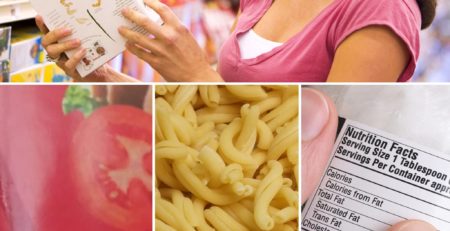HACCP: a guarantee for companies and consumers
The concept of food safety is defined by the EC Regulation n. 178/2002 which establishes the general principles and requirements of food legislation, the European Food Safety Authority (EFSA) and sets procedures in the field of food safety.
This concept must have as its first objective necessarily the welfare of the consumer, who must receive a healthy product, free from health risks.
Not to be underestimated are, however, the consequences that can fall on the food company, where one or more of the points of the HACCP system is not respected. (such as hygiene / health requirements). This can have a negative impact on the community leading to, in severe cases, even to the bankruptcy of the company itself.
The fundamental principles that we find in the EC Reg. n. 178/02 are 2:
– “from farm to fork” (“from field to table”, concept of traceability);
– the responsibility of the FBO (food business operator, a natural or legal person who guarantees and is responsible for compliance with the law in the company and the general application of procedures based on HACCP and good hygiene practice).
The Hygiene Package takes up and expands on the concepts already set out in Reg. 178/02, which are the basis of European food safety policy.
The main regulations are:
• Regulations aimed at producers:
• Regulation (EC) n. 852/2004: On the hygiene of foodstuffs;
• Regulation (EC) no. 853/2004: hygiene of food of animal origin.
• Regulations addressed to control bodies:
• Regulation (EU) No 625/2017: on official controls and other official activities carried out to ensure the enforcement of food and feed law, animal health and animal welfare rules, plant health and plant protection products.
Official controls are any form of control carried out by the competent authority to verify compliance with food and drink, feed and animal health and animal welfare legislation.
They are carried out periodically and without prior notice.
The self-control system
The system, mentioned above, that the FBO must adopt to ensure food safety, is applied through the adoption of the HACCP method (Hazard Analysis Critical Control Points), to identify specific risks and preventive measures for their control.
The application of the HACCP method to one’s own production allows the food business operator to create his own personal self-control system, becoming responsible for the choices and the adoption of the most suitable measures to guarantee the safety of his food product.
The logical path of application of the HACCP system is divided into five preliminary steps and seven main activities related to the seven fundamental principles.
Five preliminary steps:
1. establishment of the working group;
2. product description;
3. identification of possible uses of the product;
4. construct the flowchart;
5. on-site confirmation of the flowchart.
Seven basic principles:
1. identification of potential hazards associated with each process step and conducting hazard analysis;
2. determination of critical control points (CCPs: any point, step or process where a food safety hazard can be eliminated or reduced to an acceptable level);
3. definition of critical limits for each CCP (critical limits must be measurable parameters, e.g. ph, temperature, humidity, etc.);
4. definition of a monitoring system for each CCP (planned sequence of observations and measurements to determine if a critical limit has been met and if a critical point is under control)
5. definition of corrective actions
6. definition of verification procedures (the set of activities to determine whether the HACCP plan developed is working properly); and
7. definition of documentation and record-keeping templates.
Possible measures to be taken by the supervisory body:
– Requirements
– Sanctions
– Alert: with the objective of recalling the product (traceability) in the shortest possible time (effectiveness) for the protection of the consumer.
– Closure and/or suspension of activities
Regulation (EU) 2021/382 inserts the new Chapter XIa to introduce the theme of food safety culture, with the aim of increasing awareness and improving behaviors of all those involved in the sector.
Notion recently included in the 2020 revision of the General Principles of Food Hygiene CXC 1-1969 (of the Codex Alimentarius Commission), allows to adopt a strong overview on food safety and quality issues, through information and training practices in line with international standards (BRC Food 8, IFS Food 7 and FSSC 22000, all adopted by GFSI – Global Food Safety Initiative).
The awareness program includes 3 areas of implementation:
– obligations on the part of food business operators (FBOs) to establish and maintain an appropriate food safety culture, demonstrable according to precise ascertainable requirements;
– commitment on the part of management to ensure clear communication about the roles and responsibilities of the business, planning appropriate controls and training activities;
– Implementation of a food safety culture according to the nature and size of the business.
The promotion of a food safety culture can become more feasible if there is a company mission statement that includes internal policies, service charters and training plans on these issues.
It is necessary that the HACCP system is considered by the owners of any business/restaurant/food laboratory as a useful tool in order to become a guarantee for consumers and to build up a certain degree of trust in them.
If you wish to request a consultation, the team of Studio Santoro will guide you in choosing the most suitable service for your needs.











